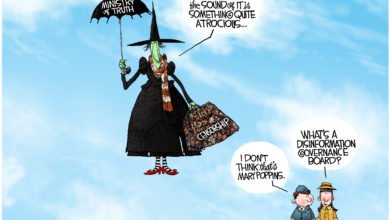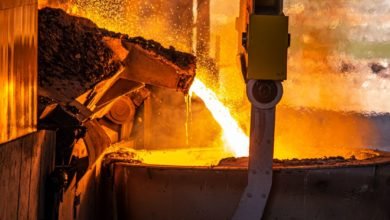‘Econ 101’: Here’s How California’s E-Truck Push Could Hamstring The American Economy

- California’s push to electrify the heavy-duty trucking fleet in the state is likely to hurt independent trucking operators and drive up costs for goods across the entire American economy, experts on California policy and the trucking industry told the Daily Caller News Foundation.
- California will ban the sale of new diesel-powered heavy-duty trucks starting in 2036, and trucking companies that move products between state’s ports and distribution hubs will not be allowed to register new diesel trucks with the state starting in 2024, according to the California Air Resources Board (CARB).
- The state’s policies will require more trucks “to haul the same amount of freight” and “have a real impact on the supply chain and the cost and reliability of transportation for the goods that consumers depend on every day,” Jeremy Kirkpatrick, a spokesperson for the American Trucking Association, told the DCNF.
California’s push to transition diesel trucks to electric models in the coming years is likely to damage the state’s trucking industry as well as the larger American economy, experts on California policy and the trucking industry told the Daily Caller News Foundation.
California law will ban the sale of new diesel-powered heavy-duty trucks in the state starting in 2036, and trucking companies that move products between the state’s ports and distribution hubs will not be allowed to register new diesel trucks starting in 2024, according to the California Air Resources Board (CARB). The policies could drive up costs for operators and consumers, an outcome that would hurt the overall U.S. economy, given that California’s 12 ports handle approximately 40% of all imported containers to the U.S. and 30% of all of its shipping container exports, according to the California Legislative Analyst’s Office.
“There are serious issues with range and charge times, operability in cold weather environments and reduced payloads because of the battery weight,” Jeremy Kirkpatrick, a spokesperson for the American Trucking Association, told the DCNF. “That means more trucks will be needed to haul the same amount of freight. All of this will have a real impact on the supply chain and the cost and reliability of transportation for the goods that consumers depend on every day.”
The state’s policies effectively mandate that nearly all of the state’s freight hauling, package delivery and box trucks would be zero-emission vehicles by no later than 2045, according to the office of Democratic California Gov. Gavin Newsom. Without incentives, electric trucks are nearly three times more expensive up front than a diesel powered rig, according to the Environmental and Energy Study Institute.
VP HARRIS: “When we invest in clean energy and electric vehicles and reduce population, more of our children can breath clean air and drink clean water.” pic.twitter.com/yhZzDmkeAM
— Daily Caller (@DailyCaller) July 14, 2023
The Inflation Reduction Act (IRA), President Joe Biden’s signature climate bill, provides incentives that can cover about $40,000 of the overall cost of electric trucks, which have an average cost of about $400,000, according to the International Council on Clean Transportation.
“Electric trucks in particular have limited range based on numerous factors (weight, outside air temperature, etc.), and many cannot operate much over 250 miles before needing to be recharged (diesels can operate well over 1,000 miles depending on fuel tank size),” Joe Rajkovacz, director of governmental affairs and communications for the Western States Trucking Association, told the DCNF. “The recharging times (supposing there are sufficient charging points), can take hours, not minutes as with diesel. This takes away significantly from the hours of service drivers are allowed daily under both state and federal regulations.”
“As trucks time out, many will not be replaced, reducing the required number of available trucks to California ports and rail yards,” Rajkovacz continued. “It is simple Econ 101; when a shortage hits, prices go up.”
California’s policies on truck emissions are the strictest in the nation and are oriented around the state’s goal to achieve an overall emissions reduction of 85% by 2045, according to Newsom’s office.
“These vehicles are far more expensive and cost-prohibitive for most truckers,” Kirkpatrick told the DCNF. He added that “96% of trucking companies in this country are small businesses operating ten trucks or fewer. The charging infrastructure is nowhere near in place, and even if it was, there’s not electricity on the grid to power the fleet.”
There were less than 700 electric truck chargers across the entire state as of July, and the state estimates that more than 150,000 new chargers will be required in order to power the fleet of the future, according to The Wall Street Journal. California’s grid already struggles to comfortably meet periods of peak demand, as the state’s grid operator issued “Flex Alerts” over a 10-day period in September 2022 urging residents to turn up their thermostats during the late afternoon and evening hours to conserve energy amid a heatwave.
The potential problems of an electrified trucking fleet will not be exclusive to California, as eight other states have opted into at least some of California’s rules for truck emissions. Those states are Oregon, Washington, Colorado, New Jersey, New York, Maryland, Massachusetts and Vermont, according to CARB.
“There are new technologies coming fast and mandating pure electric vehicles closes off innovation and creates obsolete trucks within a few years,” Edward Ring, senior fellow for the California Policy Center. told the DCNF. “Meanwhile, our entire fleet gets sidelined and countless independent truckers are wiped out.”
Content created by The Daily Caller News Foundation is available without charge to any eligible news publisher that can provide a large audience. For licensing opportunities of our original content, please contact licensing@dailycallernewsfoundation.org





This is the reason I read a piece about two deep water ports being built in Mexico. The cargo will be loaded onto railcars destined to Arizona and Texas. The ports will be designated as ports of entry for the US, the trains will maintain 40 mph, and won’t stop at the border.
California’s ports will become dead money as soon as this goes into effect,